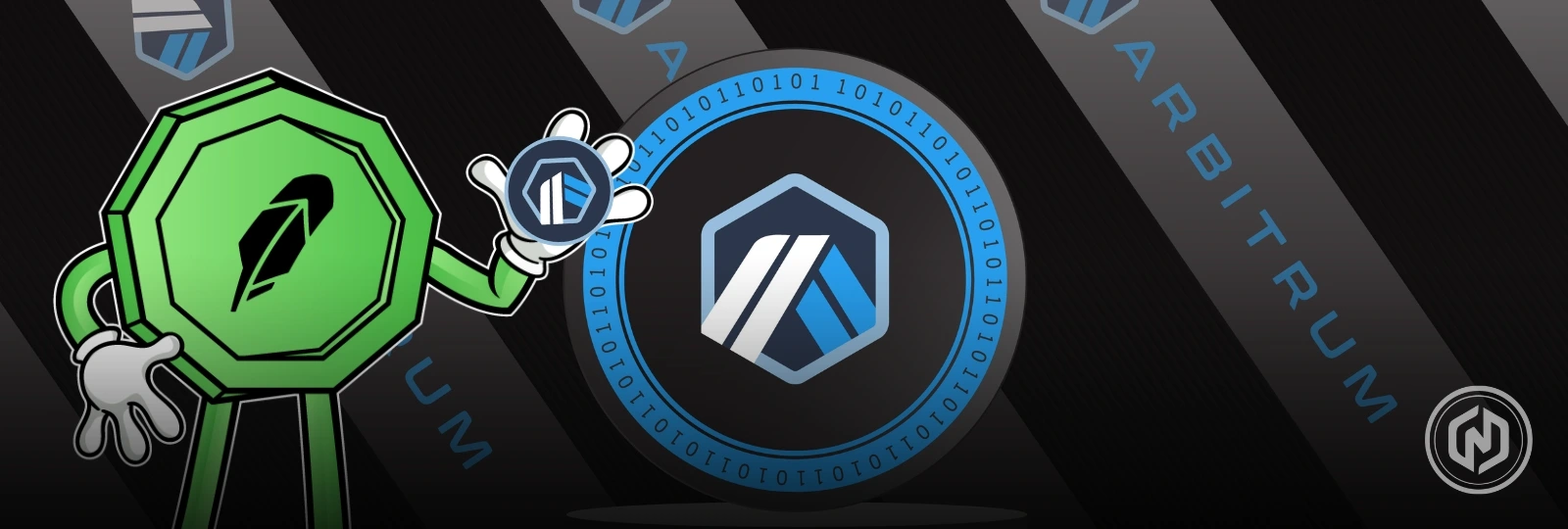What-To-Know
- Robinhood launched 780 Stock Tokens on Arbitrum, giving EU & UK users 24/5 access to tokenized versions of popular U.S. stocks and ETFs.
- These tokens track real market prices but don’t represent ownership. Users can start with as little as €1 and pay only a 0.1% FX fee.
- Tokenized finance is accelerating, with mint/burn volumes rising and on-chain dashboards tracking live activity.
Robinhood has pushed a big step toward a tokenized future for finance by putting hundreds of stock and ETF tokens onto the Arbitrum blockchain. These tokens let people in some countries trade price-tracking versions of real U.S. stocks and ETFs on a 24-hour on-chain market without owning the actual shares. Robinhood says this is part of “the future of finance,” and many users and reporters are already calling it a game changer and have already deployed 780 Stock Tokens on Arbitrum, including stocks, ETFs, Commodities, private equities, and ETNs.
Overview
Robinhood’s Stock Tokens mirror the price of real, publicly traded U.S. stocks and ETFs. When you buy a Stock Token, you’re buying a tokenized contract that follows the price of an underlying share or ETF, but the token does not give you ownership of that share. You can buy, sell, or hold these tokens inside Robinhood’s app, but for now, you cannot move them to outside wallets or other platforms. Robinhood has said the offering is available to EU and UK customers for many popular U.S. names and continues to add more assets.
Since launching, the token program has seen active minting and burning. Third-party trackers show millions of dollars in cumulative mint volume and sizable burn activity, a sign that people are trading these tokens rather than just holding them. Different trackers report different totals as Robinhood keeps adding or adjusting tokens; independent dashboards based on on-chain data are a good way to watch activity over time.
Tokens Tracker
Dashboards that monitor Robinhood’s Arbitrum deployment give a live view of which tokens exist and how much value they carry. Reports in the crypto press have noted that Robinhood has been rapidly expanding its list, some articles cite figures close to 500 tokenized assets, while more recent updates suggest the count keeps climbing as Robinhood mints additional contracts. If you want the most up-to-date list, check an on-chain tracker or Robinhood’s own pages.
Tokenization Fees
Robinhood positions Stock Tokens as low-cost to access. The company says there are no hidden spreads or trading fees from Robinhood itself; the platform charges a small foreign-exchange fee for EU customers, and standard rule-based costs may apply depending on the product and region. Because these tokens are offered as regulated derivatives under EU rules like MiFID II, Robinhood also points to safeguards such as holding the underlying assets with licensed custodians.
Tokenized stocks can lower the barrier to entering U.S. markets. You can start with as little as €1, trade outside normal exchange hours, and see familiar stock prices on a blockchain-based platform. For EU and UK users, this can mean simpler access to well-known U.S. names like GOOGL, BMNR, and VOO. At the same time, regulators and market observers are watching closely to make sure the new format protects investors and follows local laws.
Bottom Line
Whether you call it tokenization, real-world assets on-chain, or simply a new way to trade, Robinhood’s push onto Arbitrum shows how traditional markets and crypto rails are meeting. The numbers and exact token counts can change fast, but the direction is clear: the future of finance is moving toward tokenized, round-the-clock access to markets. For the most current token list and live stats, check Robinhood’s announcements and on-chain dashboards.
Also Read: Bitcoin Slips Below $95K Amid ETF Drop and Liquidations


